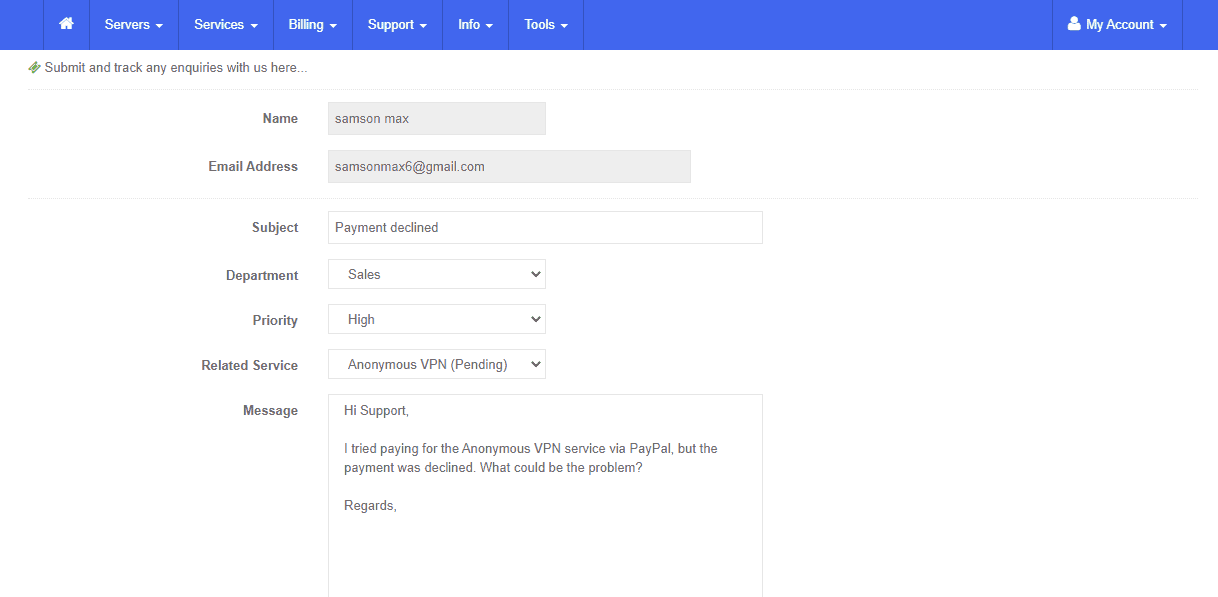

- #TORGUARD EMAIL LOGIN UTORRENT#
- #TORGUARD EMAIL LOGIN FULL#
- #TORGUARD EMAIL LOGIN WINDOWS 10#
- #TORGUARD EMAIL LOGIN ANDROID#
I ran speed tests on my Windows 10 PC while connected to a server in all 40+ countries where TorGuard has a server. Overall, TorGuard is based in the US but comes with a strict no-logs policy. TorGuard is based in the US, which is part of the 5/9/14 Eyes Alliances (a group of countries that share surveillance data with each other). But even if US authorities ask TorGuard for user data, it can’t hand anything over because it doesn’t keep any logs. It only collects your email address (needed for communication and to provide support) and payment information (needed for account creation and managing subscriptions).īut I think it’d be easier to trust TorGuard if its no-logs policy underwent an independent security audit (like ExpressVPN and TunnelBear have). TorGuard has a strict no-logs policy - it doesn’t collect your IP address or traffic (sites you visit and files you download).

TorGuard support reps told me they provide multiple obfuscation options so that users can easily switch to a different method if one doesn’t work. Obfuscation. In addition to OpenConnect, TorGuard provides obfuscation through Stunnel (which adds an extra layer of SSL encryption to OpenVPN connections to make them look like normal internet traffic) and Shadowsocks (an open-source encrypted proxy).That said, I still like ProtonVPN’s NetShield ad blocker better - when I used it to access the same ad-heavy sites, it got rid of 90% of ads. I tested Ad-Block DNS on Windows 10 multiple times and it always got rid of 70% of ads on ad-heavy sites like WhatCulture and HuffPost, making them load faster. This is TorGuard’s ad blocking feature, which blocks ads and connections to malicious sites. Top VPNs like ExpressVPN and Private Internet Access provide split-tunneling on more platforms and make it easier to use.
#TORGUARD EMAIL LOGIN ANDROID#
TorGuard only has split-tunneling on Android, and it’s annoying to use because Android OS services (like the Calculator and Calendar apps) are included in the list of apps you can exclude from or include in the VPN tunnel (and this makes it more time-consuming to go through the list of apps).
#TORGUARD EMAIL LOGIN FULL#
I like that TorGuard provides full protection against IPv6, DNS, and WebRTC leaks on all of its apps - some top VPNs (like VyprVPN) require you to manually disable IPv6 and WebRTC to prevent leaks. Plus, TorGuard uses RAM-only servers, which means every server reset wipes all data. It also comes with advanced security features like perfect forward secrecy, which changes your encryption key for each VPN connection to prevent hackers from compromising past or future encryption keys. TorGuard has several protocols, including OpenVPN, WireGuard, IKEv2/IPSec, and OpenConnect, which obfuscates VPN traffic, making it look like normal internet traffic to avoid detection. App Kill is available on Windows, macOS, and Linux. I tested it 5+ times by manually disconnecting from the VPN, and the App Kill feature always turned off qBittorrent. I used this feature while torrenting, setting App Kill to shut down qBittorrent if the VPN connection drops for an added layer of protection.

In addition to the kill switch, there’s an app-based kill switch called App Kill, which lets you choose which apps are shut down if the VPN disconnects. I really like that TorGuard has a kill switch on all apps, including iOS (many VPNs don’t have kill switches on iOS).
#TORGUARD EMAIL LOGIN UTORRENT#
TorGuard supports torrenting on almost all of its servers, and works with popular torrenting apps like uTorrent and Deluge. I can safely say it’s good for torrenting and accessing the web in restrictive countries. I spent the past weeks testing TorGuard to see how it compares to other top VPNs on the market.


 0 kommentar(er)
0 kommentar(er)
